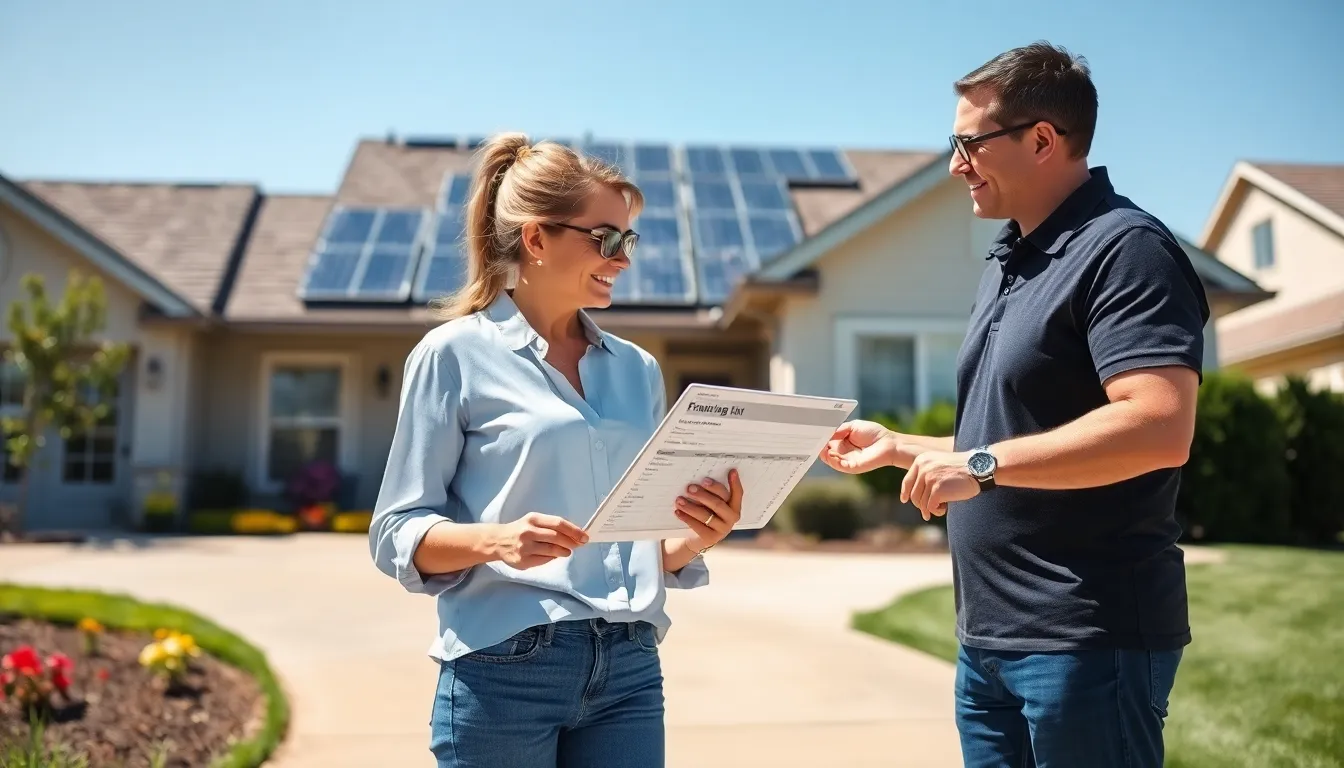Table of Contents
ToggleIn a world increasingly conscious of energy consumption and environmental impact, the potential of solar energy isn’t just a passing trend: it’s a viable solution for homeowners looking to reduce their carbon footprint while saving on energy costs. The “Lots Of Power Files Finance Solar Home eBook” emerges as a comprehensive guide, demystifying the complexities of financing options available for solar energy systems. This article explores the intricate details of solar financing, helping homeowners make informed decisions that align with their financial goals and sustainability efforts.
Understanding Solar Power Financing Options

To embark on a solar energy journey, understanding the various financing options available is imperative. Homeowners can choose between outright purchases, solar loans, leases, or power purchase agreements (PPAs). Each of these alternatives has unique pros and cons that cater to different financial situations.
Types of Solar Financing
- Cash Purchase: When homeowners pay upfront for a solar system, they benefit from immediate savings on their electricity bills and qualify for tax credits. This option is best for those with sufficient capital.
- Solar Loans: These loans allow homeowners to finance the installation cost of solar panels, enabling them to own the system over time. Monthly payments are often less than the previous energy bills, leading to long-term savings.
- Leases: With a solar lease, homeowners can install a system with little or no upfront costs. Instead, they pay a fixed monthly amount for the use of the solar energy system, but they do not own it outright.
- Power Purchase Agreements (PPAs): Similar to leases, PPAs involve little to no upfront costs. But, homeowners agree to purchase the power generated by the system at a predetermined rate, benefiting from lower energy bills without the responsibilities of ownership.
Benefits of Solar Loans and Leases
Solar loans and leases provide flexibility and accessibility for homeowners hesitant to invest a large sum upfront. The option to finance solar installations through loans or leases often leads to an immediate reduction in energy bills, making it financially attractive. Also, many state and federal initiatives support these financing methods, further incentivizing adoption.
Government Incentives and Rebates
Government incentives play a crucial role in reducing the total cost of solar installations. Homeowners can use tax credits, rebates, and other benefits that significantly lower the upfront costs, making solar energy more accessible. Understanding these incentives is vital for maximizing financial benefits and enhancing solar adoption.
Choosing the Right Financing Option for Your Home
The journey toward solar energy adoption involves careful consideration of which financing option best suits individual circumstances. Homeowners must evaluate their financial situations, energy consumption patterns, and long-term goals when deciding.
Factors to Consider in Solar Financing
- Initial Investment: Some homeowners may prefer an upfront cash purchase, while others may require financing solutions such as loans or leases.
- Energy Consumption Patterns: Analyzing previous energy bills and understanding consumption patterns can help determine the size of the solar system needed and the potential savings from each financing option.
- Loan Terms and Interest Rates: Homeowners should compare various financing offers to find favorable terms and the best interest rates, which can significantly affect total costs over time.
- Resale Value: Consideration should be given to how solar investments impact home value, especially in regions where renewable energy is increasingly valued.
Long-Term Financial Savings
While the initial investment in solar energy can seem daunting, exploring long-term financial savings is crucial. In many cases, homeowners can realize considerable savings on their electricity bills. Also, with property values often increasing due to solar installations, considering the resale potential provides further financial assurance.
Impact on Home Value
Investing in solar energy systems can significantly enhance the overall value of a home. As energy efficiency becomes increasingly prioritized among homebuyers, properties equipped with solar power often attract higher selling prices and quicker sales.
Enhancing Renewable Energy Adoption in Communities
Besides, as neighborhoods shift towards more sustainable practices, the collective impact of residential solar systems plays a crucial role in promoting renewable energy adoption. Homes powered by solar not only contribute to local energy sustainability but also foster community awareness and encourage further investment in green technologies.
Educational Resources and Tools Available in the eBook
The “Lots Of Power Files Finance Solar Home eBook” serves as a valuable resource for homeowners looking to navigate their solar financing options.
Interactive Financial Calculators
Included in the eBook are interactive financial calculators that enable readers to customize their financing scenarios. By inputting personal financial data and energy usage, homeowners can assess potential savings and costs associated with various financing options. These calculators simplify complex financial evaluations, allowing for an easier decision-making process.
Case Studies and Real-Life Examples
The eBook also features a variety of case studies that illustrate real-world applications of solar financing options. By showcasing experiences from different homeowners, readers gain insights into the outcomes of choosing specific financing methods, enhancing understanding and motivation to proceed with solar energy.
Conclusion
Investing in solar energy is a forward-thinking approach that aligns financial prudence with environmental stewardship. With multiple financing options available, along with valuable educational resources from the “Lots Of Power Files Finance Solar Home eBook”, homeowners can confidently embark on their journey towards sustainable energy solutions. Utilizing this knowledge empowers individuals to make informed decisions that not only benefit them financially but also contribute to a greener planet.







